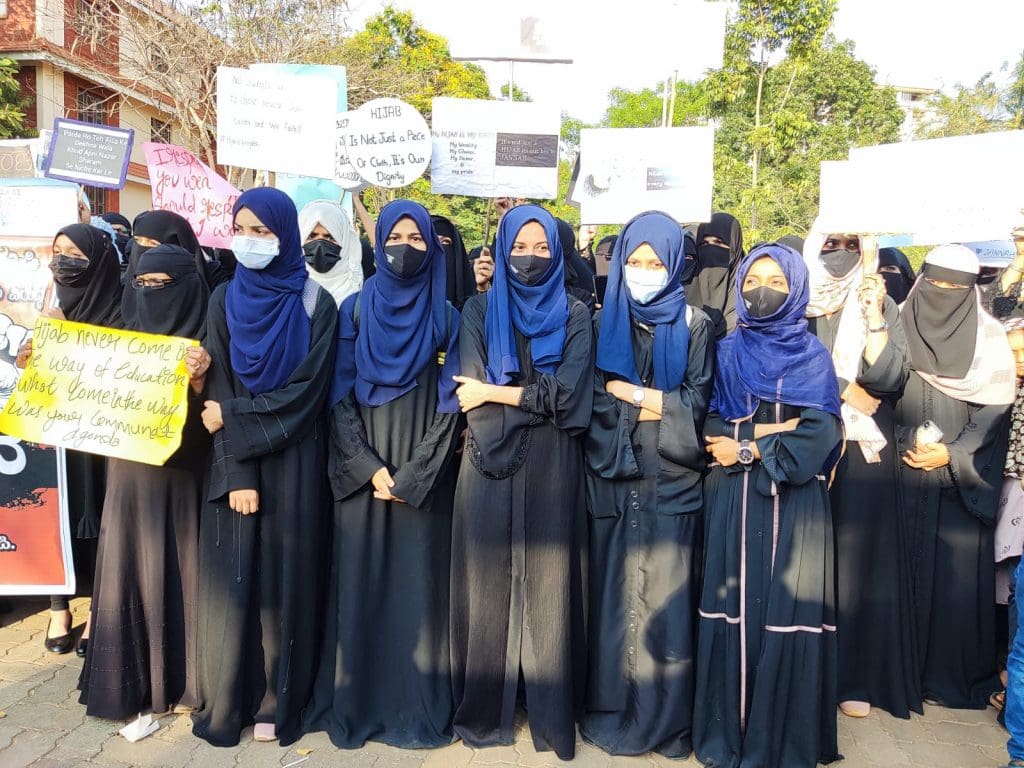
There has been a significant shift of Muslim students from government to private pre-university colleges (PUC) in Karnataka’s Udupi district, the epicentre of movement against Hijab ban, according to The Indian Express.
Data accessed by newspaper shows that Muslim students’ enrolment in government PUCs has dropped by half from the previous year. The number is also the lowest in five years. However, the number of Muslim students entering Class 11 across all pre-university colleges in Udupi is almost the same.
388 Muslim students were admitted to PUC I in government pre-university colleges in Udupi for 2021-22. In 2022-2023, only 186 Muslim students were admitted to government institutions.
91 Muslim female students were admitted to PUC I in government institutions in Udupi as against 178 in 2021-22 and the enrolment of Muslim male students dropped from 210 to 95, shows a gender break-up.
In 2022-23, 927 Muslim students enrolled in PUC I in private colleges as opposed to 662 in 2021-22. Admission of Muslim boys shows an increase from 334 to 440 and girls from 328 to 487, according to admissions data accessed by The Indian Express.
“The enrollment of Muslim girls in our PU college has almost doubled for the first time. This is a testament to how the hijab issue has actually impacted them personally and academically,” the newspaper quotes Aslam Haikady, administrator of Saliath Group of Education as says.
The admissions data also show, Udupi is the only district in Karnatala where the number of Muslim female students in government PUCs has failed to cross double digits.
Muslim students in Karnataka have been protesting the ban on hijab in educational institutions, saying the Islamophobic move of the Karnataka government had violated their religious freedom guaranteed under India’s constitution.
Muslim students, activists, and Opposition leaders across the country had alleged that these attacks on Muslim symbols and practices were part of the larger Hindutva agenda of imposing majoritarian values on the country’s 200 million Muslims.
In October last year, the Supreme Court of India had delivered a split verdict on petitions challenging the 2022 March 15 Karnataka High Court verdict dismissing a batch of pleas filed by Muslim girls studying in pre-university colleges in Udupi seeking right to wear Hijab in classrooms.
Justice Hemant Gupta had dismissed the 26 appeals filed against the judgment of the Karnataka High Court which held that hijab was not an essential practice of Islam and allowed the ban on wearing headscarf in educational institutions in the State. Expressing the divergence in his opinion, Justice Sudhanshu Dhulia set aside the Karnataka High Court judgment and held that the entire concept of essential religious practice was not essential to the dispute.



